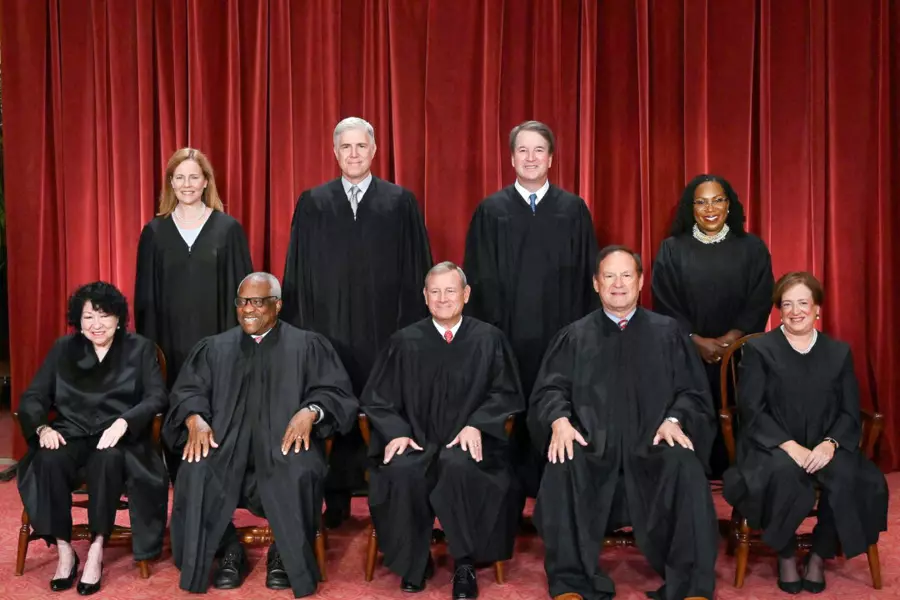The Supreme Court has decided not to rule on a transgender policy implemented by a Maryland public school district, which was brought forward by three anonymous parents of children attending these schools. These parents, who have their children enrolled at Montgomery County Public Schools in Maryland – near Washington – presented their concerns to the high court, urging it to review the school board’s “Parental Preclusion Policy.” This policy, established in 2020, involves keeping certain information about transgender students away from parents who do not support their children’s gender transition.
Frederick W. Claybrook Jr., a lawyer representing these parents, expressed disappointment at the Supreme Court’s decision not to intervene on behalf of the parents. He argued that policies such as Montgomery County Public Schools’ “Parental Preclusion Policy” are designed to prevent parents from being aware that their children are transitioning at school. These policies currently affect over 10 million students across the country.
According to Claybrook, plaintiff parents have been closely monitoring and guiding their minor children’s sexual development and instruction. They desire to continue to do so according to their own assessment of their children’s best interests but are being impeded by the Parental Preclusion Policy.
Attorneys noted that “similar cases dictate that these parents have standing due to their current injury,” according to the petition. The Supreme Court has not yet acted on several recent petitions that challenge laws issued by Tennessee and Kentucky which ban transgender medical procedures for minors after they were challenged by families in the two states as well as the Biden administration. It’s unclear if the justices will take up those cases before their term ends in June.
While the Supreme Court has declined to rule on the matter, it is important to note that the school policy also mandates that students’ medical information be kept confidential and can’t be shared without their consent with anyone else, including their parents. This includes transgender students who have transitioned at school without their parents’ knowledge or support.
However, attorneys for Montgomery County Public Schools argued in a brief submitted to the Supreme Court that the policy does not place any limits on how the parents can talk to their children about transgender matters and do not restrict anything the parents may discuss with their children.
In response to this policy, a lower court rejected the parents’ complaint because the school did not create a plan under the Parental Preclusion Policy for their children. According to that court, the parents couldn’t provide evidence that the policy may be applied to their children in the future, noting their children do not identify as transgender or something similar.
Mr. Claybrook, however, wrote in the Supreme Court petition that the parents do have standing because they should be able to “assure the well-being of their minor children,” arguing that they could potentially be targeted under the school policy. The time for this court to step in is now,” he also wrote.
As the case stands, it is uncertain if or when the Supreme Court will take up similar cases involving transgender policies and parental rights. Meanwhile, parents who are concerned about their children’s well-being while attending public schools may continue to monitor developments in this area of law.

